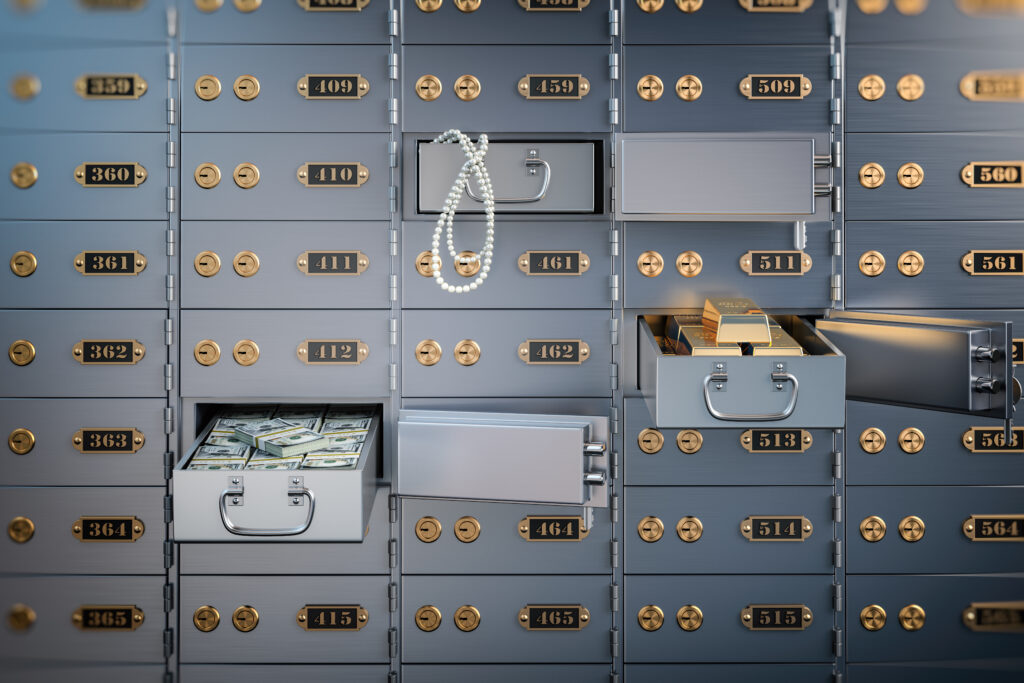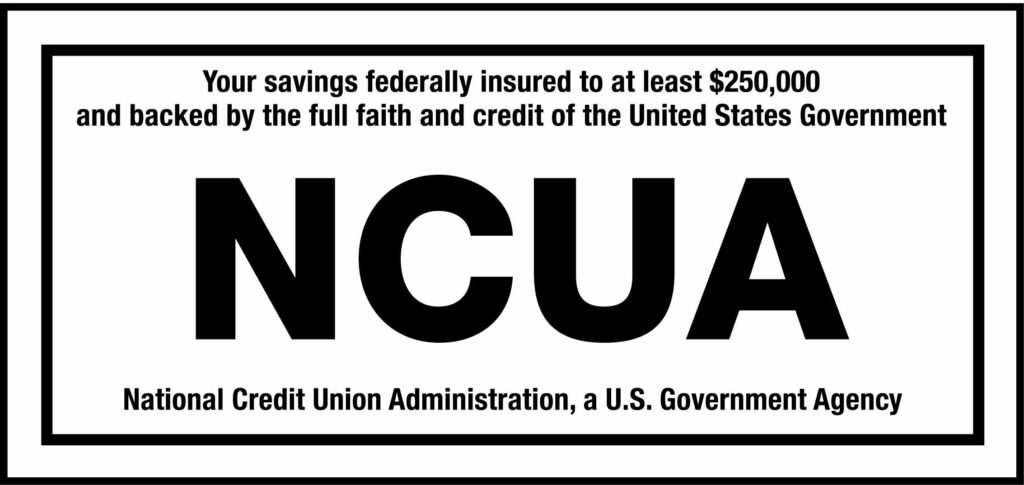What is a Safe Deposit Box?
A safe deposit box is a small, individually secured container located in the vault of a federally insured bank or credit union. These boxes offer a safe place to store valuable items, important documents, and cherished keepsakes. Unlike your home safe, a safe deposit box benefits from the advanced security of the bank’s vault, including guards, cameras, and alarm systems.

Advantages of Safe Deposit Boxes
Enhanced Security: Safe deposit boxes are stored in bank vaults that are harder to break into and are located in secure areas equipped with alarms, video cameras, and robust locks. They are also designed to withstand natural disasters such as fires, floods, hurricanes, and tornadoes, providing more security than most home safes.
Peace of Mind: For those uncomfortable with digital storage, a safe deposit box offers a physical, secure place for sensitive documents and valuables. Knowing that your items are safely tucked away in a fortified vault can provide significant peace of mind.
Reduced Risk of Loss: Storing irreplaceable documents, like birth certificates, property deeds, or sentimental valuables, in a safe deposit box reduces the risk of loss or damage compared to keeping them at home.
Disadvantages to Consider
Access Limitations: Safe deposit boxes can only be accessed during the bank’s business hours. This means you can’t retrieve items at your convenience, which can be a drawback if you need something urgently.
No Federal Insurance Coverage: Unlike deposits, the National Credit Union Administration (NCUA) does not insure the contents of a safe deposit box. Since Financial Institutions cannot verify the contents, they typically do not offer insurance for the items stored in the boxes.
Potential for Loss: In cases of non-payment of the box rental fee, the contents may be considered abandoned and turned over to the state’s unclaimed-property office. Also, in the event of a bank closure or a legal situation, the bank might be able to access your box without your consent.
What to Store in a Safe Deposit Box
Safe deposit boxes are ideal for items you don’t need frequent access to but want to keep safe:
- Important Documents: Original birth certificates, adoption papers, marriage licenses, citizenship papers, military records, and business papers.
- Valuable Jewelry and Collectibles: Items like expensive jewelry, coin or stamp collections, and family heirlooms.
- Legal Documents: Copies of wills, powers of attorney, and sensitive contracts (but avoid storing the only copy of these documents in the box).
To add another layer of protection, consider placing documents in waterproof containers, like zippered plastic bags, to safeguard against potential water damage.
What Not to Store in a Safe Deposit Box
Certain items are better kept elsewhere:
- Passports: You might need them for sudden travel.
- Only Copies of Vital Documents: Keep original copies of living wills, advanced medical directives, and durable powers of attorney at home.
- Cash: Since cash doesn’t earn interest and could be lost without FDIC protection, it is better kept in a high-yield checking account.
- Anything Illegal: Storing illegal items is against the law and could lead to severe consequences.
Managing Your Safe Deposit Box
To get the most out of your safe deposit box:
- Regular Inventory: Check the contents of your box at least once a year, and update it after significant life events, like marriage or the birth of a child.
- Designate a Trusted Individual: It’s wise to have a co-lessor or designate someone with power of attorney who can access the box in emergencies or unforeseen circumstances.
Costs and Availability
The cost of renting a safe deposit box varies based on size. Prices range from $25 to $75 per year. Check with your nearest branch for availability
What Happens to Your Box After You Pass Away?
Access to a safe deposit box after the owner’s passing depends on the financial institution and state laws. Usually, the box will be restricted until proper authorization is obtained. Executors of estates or authorized individuals can gain access by presenting necessary documentation.
Conclusion
Safe deposit boxes offer a secure solution for storing important documents and valuables. While they provide robust protection and peace of mind, they also come with limitations regarding access and insurance coverage. By managing your safe deposit box effectively and knowing what to store (and what not to), you can make the most out of this secure storage option.




